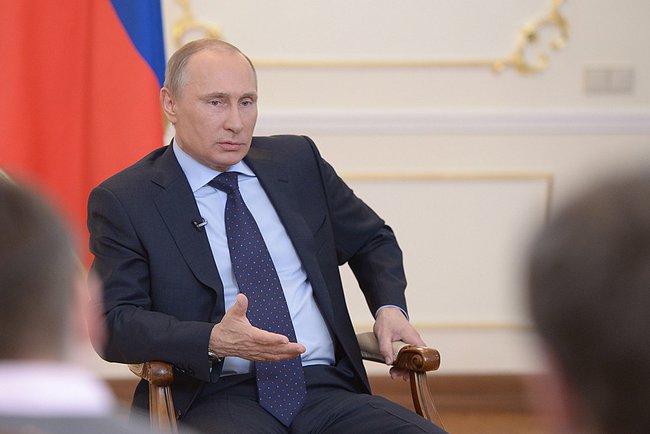 Vladimir Putin’s invasion of Ukraine is nearing the end of Act One with this weekend’s trumped-up Crimean referendum for reunification with mother Russia. As we look ahead to Acts Two and Three, what have we learned so far?
Vladimir Putin’s invasion of Ukraine is nearing the end of Act One with this weekend’s trumped-up Crimean referendum for reunification with mother Russia. As we look ahead to Acts Two and Three, what have we learned so far?
|
Putin’s strategy is crystal clear. He is building a band of buffer states in an orbit around Moscow. That is why he invaded Georgia in 2008 to separate it from its territories Abhazia and South Ossetia, still under Russian control. He is using coercion to keep Armenia, Moldova, and now Ukraine from even thinking about a relationship with the European Union, much less NATO. He will likely annex Crimea and threatens to “protect” ethnic Russians elsewhere in Ukraine if need be.
Europe and America are divided. I saw this first-hand in the Netherlands last week. If the United States and Eastern Europeans call for tougher sanctions, it is not at all clear the Germans, Dutch, Italians, and even British will agree. As a result, the West’s response has been hesitant, weak, and divided. Putin will get away with stealing Crimea because Europe is hooked on Russian natural gas. Obama should approve LNG exports to Europe to eventually relieve that dependency.
Obama didn’t cause the problem; Putin did. Obama’s critics are wrong to blame him for Putin’s aggression. That charge didn’t add up when Putin ignored George W. Bush during the Georgia War, and it doesn’t now. It may be a quaint notion, but shouldn’t politics stop at the water’s edge on Ukraine? We won the Cold War in part because we were united at home. Republicans really should stand with Obama as he duels with Putin.
Power rules: Putin took Crimea because he could. He knew NATO wouldn’t oppose him. With Russia on the move and the Chinese bullying smaller countries in the South China Sea, is it really smart to reduce the Army to its smallest size since 1940? To keep the peace, we need to convince Russia and China we’ll remain the world’s strongest power for the generation ahead.
NATO is back. Many still see it as an anachronism. But, as Colin Powell used to say, how can you close its doors when so many are knocking on them to get in? Because of NATO enlargement, Putin can’t intimidate the 10 Central Europeans brought in since the Cold War ended. Obama should call a NATO leaders meeting to strengthen conventional defenses in the Baltic States, Romania, and Poland and reaffirm the Article V defense commitment for all allies.
The battle for a “democratic peace” in Europe has resumed. That is what George H.W. Bush said we had won with the collapse of communism. Americans fought two world wars and the Cold War because Europe was fractious and violent. The revolutions from 1989 to 1991 united the continent. That is why what happens in Ukraine is so important — it renews the great struggle for peace and freedom in Europe that may not end until Putin’s generation of Soviet men has passed from the scene.
Great power peace imperiled? When Obama attends the Nuclear Security Summit in The Hague later this month, he should visit the monumental Peace Palace Andrew Carnegie built there in 1913 for the amicable resolution of global disputes. Now home to the Permanent Court of Arbitration and International Court of Justice, Putin could have taken his Crimea obsession to its gilded corridors, but he chose war instead. It is a supreme irony that one of the Peace Palace’s major backers, Czar Nicholas II, blundered into war a year later that destroyed his empire and rule. Obama can suggest that Putin, intent on restoring Russia’s greatness, be mindful of that historical lesson. Carnegie’s call for a Great Power peace still resonates a century later. That is the peace Putin is threatening with his ill-advised land grab in Europe.
Image: Russian President Vladimir Putin at a press conference on the crisis in Ukraine, March 4, 2014 (Photo: kremlin.ru/CC License)
